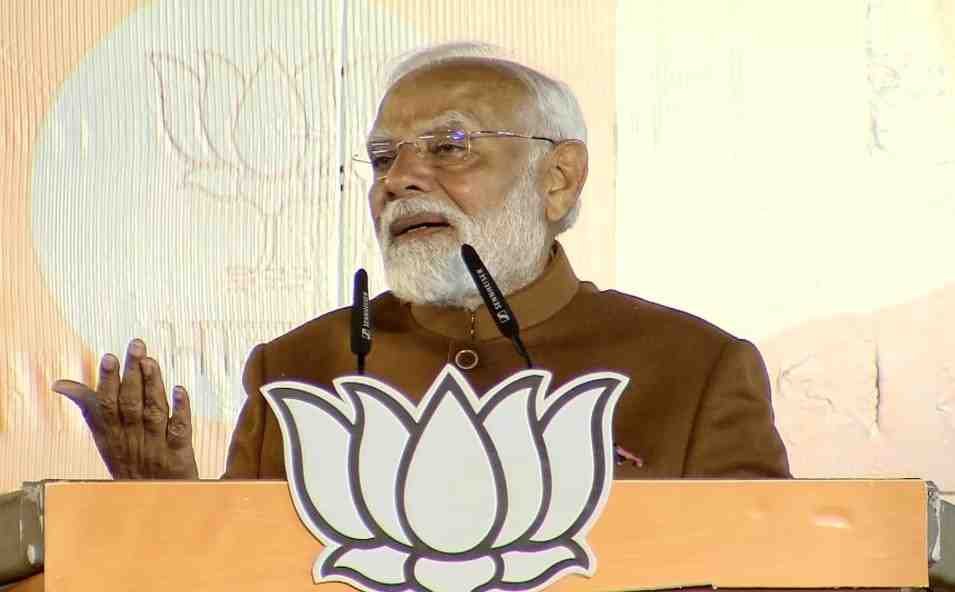Prime Minister Narendra Modi launched a scathing attack on Bengal Chief Minister Mamata Banerjee and the Trinamool Congress (TMC) on Friday over the brutal rape and murder of a junior doctor at Kolkata’s RG Kar Medical College and Hospital last year. Speaking at an event in Durgapur to inaugurate infrastructure projects worth Rs 5,000 crore, the Prime Minister accused the state’s ruling party of shielding the main accused and questioned the safety of women in West Bengal.
PM Modi’s remarks come as political temperatures begin to rise ahead of next year’s crucial Assembly elections. The Prime Minister described the RG Kar case — in which a young woman’s mutilated body was found in a seminar room on the hospital’s premises — as a “deeply painful” reminder of the deteriorating law and order in the state, particularly with regard to women’s safety.
“Even hospitals, places meant for healing, are no longer safe for our daughters in Bengal,” Modi declared, referring to the August 2024 incident that shook the state and led to protests from the medical fraternity and civil society.
The Prime Minister directly invoked the TMC’s long-standing slogan, “Maa, Mati, Manush” — meaning “mother, motherland, people” — a political catchphrase that defined Mamata Banerjee’s rise to power in the 2011 state elections. “A party that claims to stand for ‘maa, mati, manush’ cannot remain silent when a daughter of Bengal is subjected to such horror,” he said. “It is especially heartbreaking in the land of pioneers like Kadambini Ganguly, who blazed the trail for women in medicine.”
The attack was part of a larger critique of Banerjee’s governance, which Modi claimed has led to a decline in employment opportunities, prompting young people to migrate to other states. “Bengal’s youth are leaving for jobs in other parts of the country. This is the result of a government that prioritizes vote bank politics over development,” he told the gathering.
The RG Kar case, which initially drew fierce outrage, became even more politically charged after allegations surfaced that the accused, Sanjay Roy, had links to individuals within the ruling party. Opposition leaders, including those from the BJP and Congress, accused the Trinamool government of trying to cover up the crime and manipulating the police investigation. There were also reports of crime scene tampering during a protest march, which the BJP blamed on Trinamool activists.
In response to public pressure and nationwide protests by doctors, the case was eventually handed over to the Central Bureau of Investigation (CBI). The investigation concluded with Roy’s conviction and sentencing to life imprisonment. However, the court’s decision to reject the death penalty — despite appeals from the victim’s family and even Banerjee herself — sparked further debate and dissatisfaction.
No other suspects were charged, and the government’s handling of the case continues to be a sensitive topic in Bengal politics.
In his Durgapur speech, Modi linked the incident to a broader pattern of what he termed “criminal impunity under political protection.” “Crimes like this won’t stop until the people bring change. Bengal needs a government that works for everyone — not just for a party,” he asserted, clearly pitching the BJP as the alternative in the upcoming polls.
With Assembly elections expected in early 2026, the BJP is intensifying its campaign in Bengal, aiming to dislodge the Trinamool after more than a decade in power. Women voters, historically seen as a key support base for the TMC, may play a decisive role in the upcoming battle, especially with safety and justice emerging as central campaign themes.
As the political narrative builds around this tragic case, Bengal finds itself at a crossroads — between old slogans and new demands for accountability.








